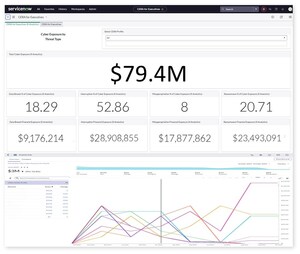CHICAGO, Oct. 6, 2021 /PRNewswire/ -- While many industries are struggling to retain top talent – so much that the "Great Resignation" is being used to describe the American workforce in 2021 – banks have made progress in reducing employee turnover for the past three years, according to data from the Crowe 2021 Bank Compensation and Benefits Survey.
Crowe, a public accounting, consulting and technology firm in the U.S. with offices around the world, conducted its 40th annual bank compensation and benefits survey. The study compiled data from 437 banks and credit unions and includes information on benefits, incentives, director compensation and human resource practices, as well as bank salary and bonus benchmarks for 271 job positions.
Over the past two years, the average turnover rate for both nonofficer and officer positions has reduced significantly, with findings showing a significant decrease since 2019 across all positions. The turnover rate for officer positions has been reduced by more than half in the past four years, from 7.3% in 2017 to 3.3% in 2021. Although the turnover rate for nonofficers is higher than officers, it dropped from 23.6% in 2019 to 16.2% in 2021, the lowest it has been in four years.
"The data shows that banks have been making great progress in reducing turnover, even during a time when many industries are seeing severe attrition in their workforce," said Timothy Reimink, a managing director specializing in financial services consulting and performance improvement at Crowe. "Banks are investing in their people and have taken steps to improve retention and their recruiting efforts by offering better benefits, more flexibility and higher raises."
Among those surveyed in 2021, 62.4% of financial service organizations have a pay-for-performance program, which leading practices suggest is the best pay strategy to increase employee morale. According to the data collected in this year's survey, there was a 5.5% pay increase for employees who exceed expectations, which is the highest increase for top performers in 10 years.
In addition to performance-based pay increases, more banks are retaining and recruiting top talent by acknowledging the importance of work-life balance. "Fewer banks are requiring extended tenure to qualify for three or more weeks of paid time off and are shifting towards increasingly generous PTO plans for new hires, especially at the officer level," said Mark Walztoni, a managing director specializing in employee benefit plans at Crowe. According to the survey, 30% of banks granted three or more weeks of PTO to officers as part of their hire-on benefits.
Other key survey findings include:
- Survey respondents have a more confident outlook on the economy and performance of their organization, with only 11% anticipating smaller-than-normal raises compared to 44% in last year's survey.
- Seventy-five percent of banks reported that they allowed some employees to work remotely at least one day per week. Prior to the pandemic, remote work was actively discouraged by many financial institutions, so Reimink noted it will be interesting to monitor the effect this will have on recruitment and retention in the next several years.
- Nearly 48.2% of employees holding executive-level positions are over the age of 55, yet only 27.3% of respondents think their institution is prepared for the succession of leadership to the next generation. According to Reimink, it is critical for banks to have a longer-term vision regarding succession for the health of their organization.
- The median salary of CEOs/presidents increased 2.5% since 2020, for a 2021 median salary of $251,082.
- The position of teller I, which doesn't require previous experience in the industry, reflected a 4.6% increase in median salary since 2020, one of the largest reported percentage increases of any position in the survey. According to Reimink, this is likely the banking industry's response to rising minimum wages and competing benefits of large-scale retailers and other entry-level positions available in the market.
The chief information officer (CIO) and chief compliance offer (CCO) positions saw the largest increases in pay from the previous year with a 6.8% and 6.7% increase, respectively. "Many customers shifted to digital banking solutions as a result of the pandemic, so the importance of analytics and better data governance cannot be overstated," said Reimink. "The need to gather quality data in order to understand the customer is strong and may explain increasing salaries in some lower-level positions beyond the impact of rising competitor wages. For example, the median salary for data entry/item processing clerks increased by 16.4% from 2019 to 2021."
In addition to the national survey, Crowe prepared regional compensation reports for the Midwest, Northeast, South Central and Southeast regions, as well as state reports for Illinois, Indiana, Minnesota, New Jersey, Ohio, Tennessee and Texas.
For more information on the survey findings please read the 2021 Crowe Bank Compensation and Benefits survey report.
About the 2021 Crowe Bank Compensation and Benefits Survey
The 2021 Crowe Bank Compensation and Benefits Survey was completed by 437 financial services companies varying in asset size and geographic location. Using data as of March 31, 2021, the participant breakdown is as follows: 138 institutions had less than $250 million in total assets; 121 had between $250 million and $500 million in total assets; 94 had between $500 million and $1 billion in total assets; 72 had between $1 billion and $5 billion in total assets; and 12 had more than $5 billion in total assets.
About Crowe
Crowe LLP is a public accounting, consulting and technology firm with offices around the world. Crowe uses its deep industry expertise to provide audit services to public and private entities. The firm and its subsidiaries also help clients make smart decisions that lead to lasting value with its tax, advisory and consulting services. Crowe is recognized by many organizations as one of the best places to work in the U.S. As an independent member of Crowe Global, one of the largest global accounting networks in the world, Crowe serves clients worldwide. The network consists of more than 200 independent accounting and advisory services firms in more than 130 countries around the world.
SOURCE Crowe LLP






Share this article